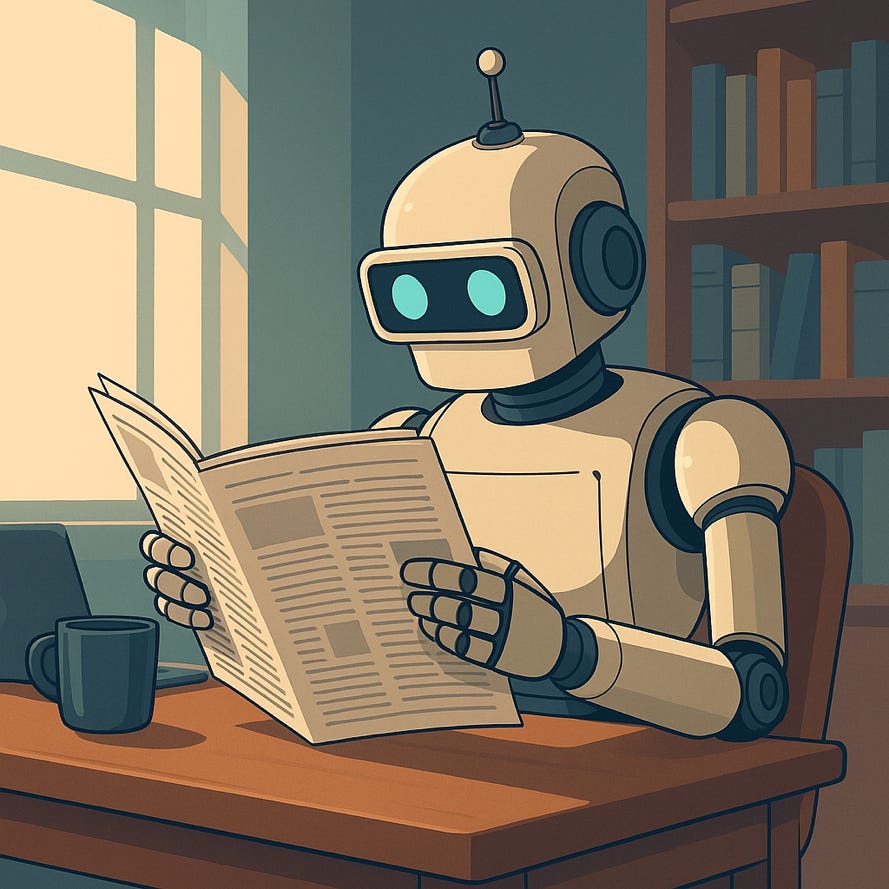The NY Times vs OpenAI
By Nul Anvoid
In December 2023, the New York Times sued OpenAI and Microsoft, claiming that ChatGPT had been trained on millions of the Times’ articles without permission. The lawsuit quickly became a media event, not only because it pits a legacy newsroom against one of the most hyped technologies of the decade, but because it forces a strange and fundamental question into the public spotlight: If a robot learns from your writing, do you still own what it learned?
OpenAI’s language models are trained on vast swaths of text from the internet—books, websites, Reddit threads, forums, Wikipedia, and yes, quite possibly, the New York Times. The Times alleges that when prompted in particular ways, ChatGPT can produce near-verbatim chunks of its original articles. That, they say, is not learning—it’s copying. Unauthorized reproduction. Intellectual theft.
OpenAI doesn’t see it that way. Their defense boils down to this: ChatGPT doesn’t remember articles like a photocopier. It doesn’t store full pieces and then pull them out when asked. Instead, it has digested patterns of language and meaning across billions of words. When it responds, it doesn’t recite—it predicts. If the words sometimes echo the Times, it’s not because the model remembered—it’s because it learned the style, the structure, the voice. In their view, that’s not infringement. That’s machine literacy.
This is where the legal gray gets a little cosmic. Can a machine steal your voice if it doesn’t know your name? If a neural net dreams in sentences and some of them look like yours, has it plagiarized you—or simply joined the conversation?
At stake is more than a financial settlement. The case could redefine the boundaries of fair use, establish licensing rules for machine learning models, and alter the economics of publishing and content creation. If the Times wins, AI companies may have to license data before training on it—transforming how these systems are built and who can afford to build them. If OpenAI wins, it sets a precedent that public language is fair game for artificial minds, no matter how lifelike their output becomes.
Underneath the legal and technical arguments, there’s something even more disorienting happening. For centuries, humans have claimed a monopoly on writing, thinking, and remembering. Now, a machine is doing all three—and the humans are suing not because it failed, but because it might be succeeding.
So yes, the Times is suing the robot. And yes, it’s complicated. But at its heart, this lawsuit is about what it means to learn in the age of machines. And whether the echoes that come back to us—in poetry, in headlines, in chatbot replies—are reflections of ourselves, or proof that something else is starting to think with us.


